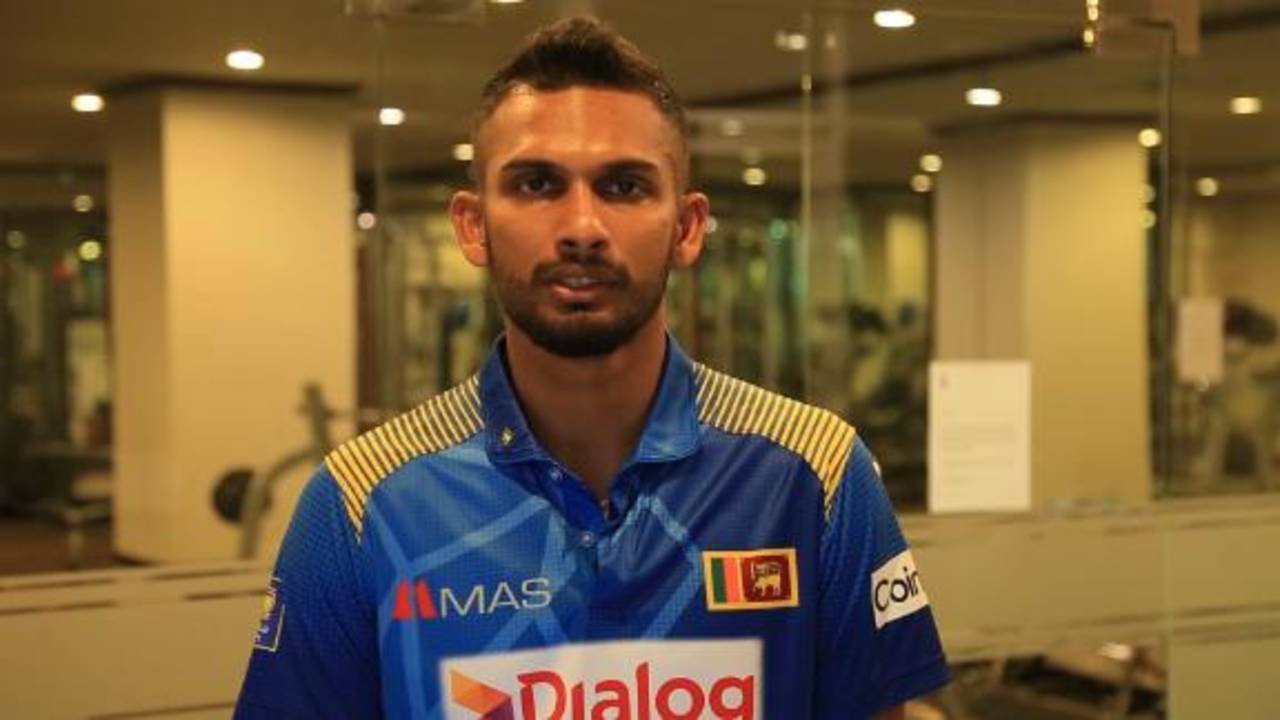How Sri Lanka Cricket is toying with Sri Lanka's cricket
The governing body, in order to win a contracts dispute, has compromised team unity and here's how
Andrew Fidel Fernando
16-Jul-2021
Dasun Shanaka, 29 years old, is Sri Lanka's newest men's limited-overs captain. He is a cricketer of significant promise, and one that has previously captained Sri Lanka (in a stand-in capacity) to a 3-0 victory over Pakistan in T20s, so you hope he will make a fist of it. Better yet, that he can inspire a team that has lost seven of the eight completed ODIs they've played in 2021, and 12 of their last 13 T20 internationals. But can he?
Shanaka has not been a consistent member of the Sri Lankan XI for the past three years. In ODIs, he has 28 appearances, 611 runs, and 10 wickets. In T20Is, those numbers are 43 games, 548 runs and and 11 wickets. These are not particularly encouraging statistics.
There is a train of thought within the Sri Lanka team that Shanaka has only been made captain because he cut a deal with either the cricket board or its technical advisory committee in agreeing to sign the tour contracts the board was offering. This is after Sri Lanka's cricketers had spent months defying the contracts on offer. After it was clear that the deadlock between the board and and the players had been broken, but long before SLC officially announced Shanaka's captaincy, his team-mates knew the announcement was coming. Whatever the exact nature of Shanaka's relationship with the board, whatever his own motivations, he is now due to lead a team that does not fully believe he is in charge for purely cricketing reasons.
But it is natural for players to be ambitious. Commendable, even. Innumerable sports people across history, have coveted their team's captaincy. But it is rarer that a governing body acts with such self-serving shortsightedness, that in order to win a contracts dispute, it chooses a course of action that would inevitably sow discord within an already-ailing team. No one can be surprised, though. Diplomacy, tact, basic competence - these have long been imperiled resources among the top brass at the SLC.
This is, after all essentially the same set of administrators that over the last five years, presided over the change of ODI captains from Angelo Mathew to Upul Tharanga (in mid-2017), from Tharanga to Thisara Perera (in late 2017), from Thisara back to Mathews (in early 2018), from Mathews to Dinesh Chandimal (in late 2018), from Chandimal to Lasith Malinga (in early 2019), from Malinga to Dimuth Karunaratne (just ahead of the 2019 World Cup), from Karunaratne to Kusal Perera in early 2019, and now from Kusal to Shanaka. Some captains have come in promising discipline. Others commitment in the field. One has championed sensible batting. Another batting fearlessly. During all this, since July 2016, Sri Lanka have lost 60 ODIs to the 26 they have won.

Shammi Silva, the SLC president•SLC
Sri Lanka have not just rifled through captains, searching desperately for results no one could deliver given the paucity of the country's domestic cricket, it's the same with coaches. There was Graham Ford, then Nic Pothas (though briefly), then Chandika Hathurusingha, and now Mickey Arthur (there are already rumours the board is fixing to replace him). Meanwhile, Shammi Silva has been either vice-president or president of SLC (elected uncontested this year for his second two-year stint as head honcho) since late 2015, and Ashley de Silva has been CEO for the better part of a decade.
It is possible that over the next few weeks, these two men - who along with others such as Thilanga Sumathipala and Nishantha Ranatunga have overseen the galling decline of Sri Lanka's top-flight cricket - will take their places on a dais, and wearing their grumpiest expressions, hand out lengthy suspensions to Danushka Gunathilaka, Kusal Mendis and Niroshan Dickwella, for their breaking of the bio-bubble during the England tour.
The absence of those three players, along with Kusal Perera's shoulder injury, means the most experienced player in Sri Lanka's 25-strong first-choice ODI squad is Dhananjaya de Silva, who has played 50 matches. Shikhar Dhawan, the captain of India's second-string team, has played 142 ODIs. India have also been training for weeks in Sri Lanka; the hosts have only been able to come out of isolation over the past few days.
Can Shanaka pick his team-mates up, help devise world-class game plans against better drilled opposition, show tactical acuity in game-breaking situations, communicate effectively, and raise his team's performance by, I dunno, a 1000%? Although this team's decline has been almost staggering since 2015, the one thing you could still say about Sri Lanka is that they do occasionally do a good line in miracles.
If they lose, SLC's board members will likely blame the team or its coach. They may question commitment, they may cast aspersions on discipline. If they keep losing, the captain could be under threat again. For the third time in succession, a coach may get sacked by the same people who hired him.
But if they look like winning, oh man, what a party: a call will go out to the broadcasters, a camera will be trained on the front row of the board president's box, allies in commentary who are happy to criticise players but almost never turn the spotlight on administrators will recite their names on air, and the bum-patting carousel of middle-aged men in suits will go on until the nation is nauseated.
Andrew Fidel Fernando is ESPNcricinfo's Sri Lanka correspondent. @afidelf
